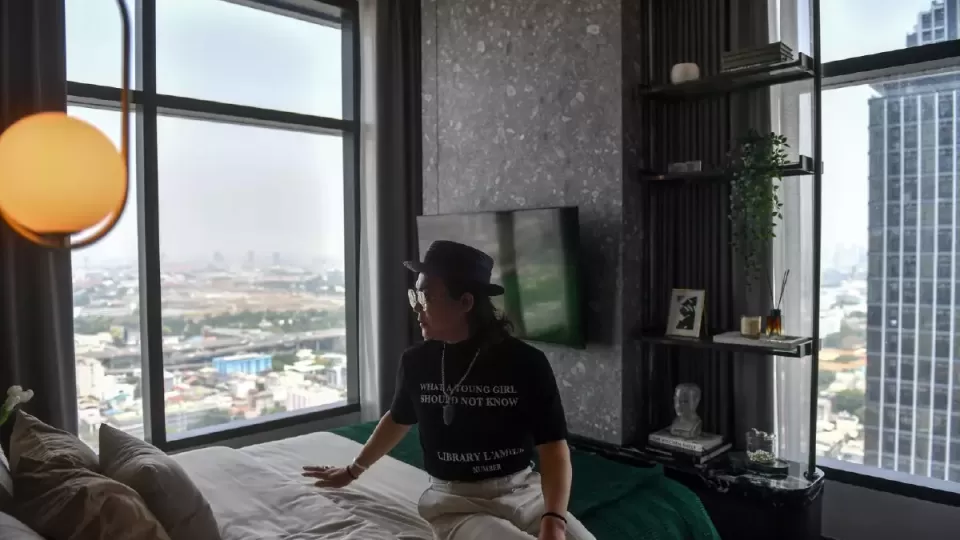May 9, 2023
BANGKOK – Shanghai resident Daniel Bian drinks in the sweeping views over the Thai capital from the 19th-floor, rooftop swimming pool of a luxury condominium which may become his second home.
“Hello, Bangkok!” he shouts happily as his 70-year-old mother looks on, smiling.
Cooped up in China for three years under some of the world’s toughest curbs against Covid-19, Bian is among a flood of mainland Chinese hunting for property in the southeast Asian nation since Beijing opened its borders this year. Many are eager to invest in a second home, keen for a safety net in case of a similar disease outbreak, and also to hedge against economic risks at home.
“We feel like there are plus factors like we will be able to holiday, there’s more freedom and convenience (in Thailand). The freedom to enter or leave the country, to travel back and forth. As well as the freedom of society, and life. Freedom is very important,” says Bian, dressed for a tropical holiday in dapper, tinted sunglasses and white linen pants.
Thailand was the most popular outbound destination for Chinese travellers during the May Labour Day holiday, data from the website Trip.com showed, followed by Japan and South Korea. As a place to live or stay for extended periods, the Southeast Asian nation’s good international schools and quality medical facilities are also a strong draw.
“It would be a pity to buy a property solely for investment and not live in it, because Thailand is comfortable to live in and the society is caring,” said Bian, who organises cultural exchanges between China and other countries.
Thailand expects at least 5 million Chinese visitors this year. It’s a far cry from the pre-covid era when nearly a third of the 40 million arrivals were from China. Chinese on holiday are of course welcome, but investors are even more so.
Thailand’s Real Estate Information Centre (REIC) says that before the pandemic, Chinese buyers accounted for 60 % of the foreign revenue which fell to about 40 % during the Covid years. Those in the industry say despite Thai regulations that limit foreign ownership to just 49% of the units in any condominium development, prospective buyers are pouring in, bringing business to real estate agents who target Chinese buyers.
One such agent is Owen Zhu, who escorted Bian, 50, and his mother, to view three high-end apartments in Bangkok during a day-long property tour.
“Before the pandemic, most Chinese buyers bought middle or lower-level homes for investment, because they can earn more by getting a cheaper property. But it has changed a lot after the pandemic, most of the Chinese choose to buy luxury apartments to live in,” Zhu said.
Such properties typically cost 2 million yuan ($290,000) and up, he added.
Topping buyers’ lists are locations in major cities such as the capital, Bangkok, along with Chiang Mai in the mountainous north, the east coast beach resort of Pattaya and the northeastern region of Isan.


